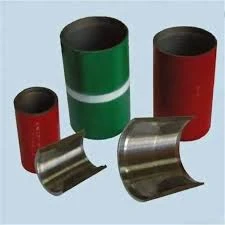- Afrikaans
- Albanian
- Amharic
- Arabic
- Armenian
- Azerbaijani
- Basque
- Belarusian
- Bengali
- Bosnian
- Bulgarian
- Catalan
- Cebuano
- Corsican
- Croatian
- Czech
- Danish
- Dutch
- English
- Esperanto
- Estonian
- Finnish
- French
- Frisian
- Galician
- Georgian
- German
- Greek
- Gujarati
- Haitian Creole
- hausa
- hawaiian
- Hebrew
- Hindi
- Miao
- Hungarian
- Icelandic
- igbo
- Indonesian
- irish
- Italian
- Japanese
- Javanese
- Kannada
- kazakh
- Khmer
- Rwandese
- Korean
- Kurdish
- Kyrgyz
- Lao
- Latin
- Latvian
- Lithuanian
- Luxembourgish
- Macedonian
- Malgashi
- Malay
- Malayalam
- Maltese
- Maori
- Marathi
- Mongolian
- Myanmar
- Nepali
- Norwegian
- Norwegian
- Occitan
- Pashto
- Persian
- Polish
- Portuguese
- Punjabi
- Romanian
- Russian
- Samoan
- Scottish Gaelic
- Serbian
- Sesotho
- Shona
- Sindhi
- Sinhala
- Slovak
- Slovenian
- Somali
- Spanish
- Sundanese
- Swahili
- Swedish
- Tagalog
- Tajik
- Tamil
- Tatar
- Telugu
- Thai
- Turkish
- Turkmen
- Ukrainian
- Urdu
- Uighur
- Uzbek
- Vietnamese
- Welsh
- Bantu
- Yiddish
- Yoruba
- Zulu
pipe mill
The Pipe Mill An Essential Hub for Modern Infrastructure
In the realm of manufacturing, few processes are as vital and specialized as that of a pipe mill. These facilities are the backbone of numerous industries, producing pipes that are crucial for various applications ranging from construction to oil and gas. Understanding the operations, technologies, and significance of pipe mills is essential for anyone interested in modern industrial practices.
What is a Pipe Mill?
A pipe mill is a manufacturing plant dedicated to producing tubular products, primarily pipes used for transportation and structural purposes. These pipes can be made from various materials, including steel, stainless steel, aluminum, and plastic. The manufacturing process typically involves the shaping of raw materials into long, continuous sections known as pipes through various machining and welding techniques.
The Manufacturing Process
The process of pipe manufacturing generally begins with the selection of raw materials. For steel pipes, large coils of hot-rolled steel strip are often used. The first step in the production line is the uncoiling of these strips, followed by edge preparation, where the edges are rolled and shaped to ensure they fit together correctly.
Once the strip is prepared, it undergoes the forming process. In a typical pipe mill, the strip is rolled and shaped into a circular form using a series of rollers. The circular edges are then welded together using techniques like electric resistance welding (ERW) or submerged arc welding (SAW), depending on the type of pipe being produced. This welding process is critical as it ensures the structural integrity of the final product.
After welding, the newly formed pipe is subjected to a series of tests for quality assurance. These tests can include visual inspections, ultrasonic testing, and hydrostatic tests to assess the strength and leak resistance of the pipes. Final processing steps may involve cutting the pipes to specific lengths, threading the ends, or applying protective coatings.
pipe mill

Technology in Pipe Mills
Modern pipe mills leverage advanced technologies to enhance efficiency and product quality. Automation plays a significant role in streamlining operations, reducing labor costs, and minimizing errors. Computer Numerical Control (CNC) machines are often used for precise cutting and shaping, ensuring that the dimensions and tolerances of the pipes meet stringent industry standards.
Moreover, the integration of Industry 4.0 technologies allows pipe mills to gather and analyze data from their production processes. This data can be utilized for predictive maintenance, which helps to avoid costly downtime by addressing potential equipment failures before they occur.
The Importance of Pipe Mills
The significance of pipe mills extends beyond their manufacturing capabilities. The pipes produced are integral to various critical infrastructures, including water supply systems, sewage disposal, and oil and gas pipelines. In construction, they are used for structuring buildings, bridges, and tunnels, guaranteeing durability and safety.
Moreover, with the increasing focus on sustainability, pipe mills are also adapting to produce more environmentally friendly products. This shift includes the recycling of materials and the development of pipes that are compatible with renewable energy systems, such as those used in geothermal or solar energy applications.
Conclusion
In conclusion, pipe mills are a cornerstone of modern manufacturing and infrastructure. Their sophisticated processes and technologies contribute significantly to the economy and the quality of life by ensuring the availability of essential piping systems. As industries evolve and demands change, pipe mills will continue to innovate, adapting to new challenges and playing a crucial role in shaping the future of construction and resource management. Understanding the intricacies of pipe mills allows us to appreciate the complex web of manufacturing processes that support our daily lives.
-
Tubing Pup Joints: Essential Components for Oil and Gas OperationsNewsJul.10,2025
-
Pup Joints: Essential Components for Reliable Drilling OperationsNewsJul.10,2025
-
Pipe Couplings: Connecting Your World EfficientlyNewsJul.10,2025
-
Mastering Oilfield Operations with Quality Tubing and CasingNewsJul.10,2025
-
High-Quality Casing Couplings for Every NeedNewsJul.10,2025
-
Boost Your Drilling Efficiency with Premium Crossover Tools & Seating NipplesNewsJul.10,2025







